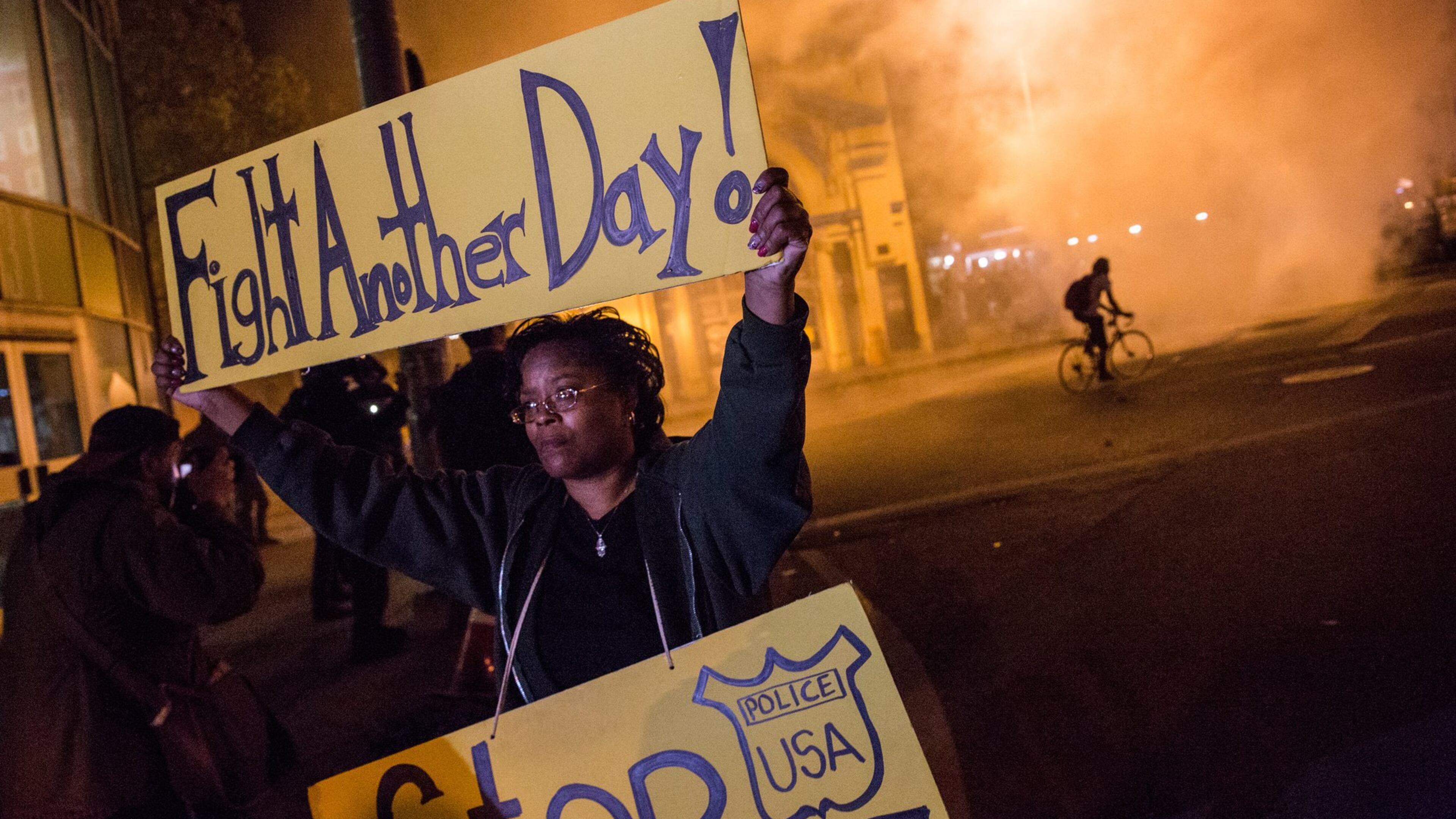Bill Torpy at Large: Atlanta arrests off 19% this year: Ferguson Effect?

Last week, FBI Director James Comey said cops might be leaning back these days, afraid to do their jobs because they’ll end up on a video making them look bad.
The argument is the so-called Ferguson Effect, which says officers are getting less assertive, worried any action they take can and will be used against them.
“There’s a perception that police are less likely to do the marginal additional policing that suppresses crime — the getting out of your car at 2 in the morning and saying to a group of guys, ‘Hey, what are you doing here?’” Comey said.
His comments were in response to murder rates rising in many American cities after years of statistical decline.
The Ferguson Effect debate raged a year ago when The Wall Street Journal ran an op-ed piece, “The New Nationwide Crime Wave.” In that article, the author posited that cops were getting hesitant because of the backlash from a cop killing a man in Ferguson, Mo. And that may have caused murder spikes in cities like Chicago, Los Angeles, New York — and Atlanta, which was seeing a 32 percent jump from 2014.
That number sounds alarming, but authors (myself excluded) often cherry-pick stats from a moment frozen in time to prove a preconceived point. By the end of 2015, Atlanta’s major crime actually dropped (3 percent), as it has for years. There were 95 murders, two more than the previous year, but still historically low.
Again, overall crime is down 3 percent so far this year.
But something peculiar is going on. Fewer people are getting arrested in Atlanta and in DeKalb County. A lot fewer.
At the same time, however, crime is down in both places.
As of May 7, Atlanta police made 1,496 arrests for major crimes ranging from larceny to murder. Last year, they made 1,855 such arrests, meaning there’s been a drop of 19 percent, including 25 percent decreases in arrests for crimes like robbery, aggravated assault and burglary.
There was a 12 percent drop for all arrests, like drug or “quality of life” offenses — from 14,398 in 2015 to 12,638 this year.
DeKalb is similar. As of May 14, there has been an 18 percent drop in felony arrests and 19 percent overall. Murders — 26 — are the same as last year.
Crime is down there, too — 6 percent for violent crime and 14 percent for property crime.
I asked APD’s Sgt. Richard Straut, a rep for the Police Benevolent Association, whether the drop in Atlanta’s arrests means the Ferguson Effect has taken hold.
He figured it had. Or at least it might.
“The evidence speaks for itself; how else can you explain it?” he asked. “We have officers still doing their job going after violent offenders. But in the back of your mind, you say, ‘Am I going to rush into this?’ “
Straut is pushing 30 years on the force and was once shot in the head by a man arguing over a $5 cab fee. He said he hasn’t seen evidence of cops backing off, “But have I heard it in conversations? Absolutely. You don’t talk about it publicly. It’s a career killer.”
In addition, both management and the rank and file are loath to admit that cops might not give it their all.
APD Officer Ken Allen, also with 30 years on the force, said the drop in arrests is probably due to cops running from 911 call to 911 call. “They aren’t able to do as much self-generated policing,” he said. “Are guys not going in to stuff? I’m not seeing it; I’m not hearing it.”
Still, he added, they don’t live in a bubble, “You may have officers responding a bit slower because they are concerned about being the next person on the news.”
DeKalb’s Public Safety Director Cedric Alexander, who talks with lots of chiefs across the country, said there may be a Ferguson Effect in cities like Baltimore or Chicago, which have had high-profile deaths and resulting riots (Baltimore) and massive protests (Chicago) concerning deaths. (One of his guys shot a naked military veteran having a psychotic breakdown. That officer was indicted on felony charges but no large protests.)
The idea that video is holding cops back is rejected by Alexander as it is by Straut and even APD’s Assistant Chief Shawn Jones. Jones says the drops in arrests may have to do with better sentencing by judges or more work with schools (APD truancy violations are up 36 percent).
To a man, the cops I talked with say they want cameras. More often than not, video supports the officer’s version, they say.
FBI Director Comey, I may note, is a career lawyer who never had to get out of his squad car at 2 a.m., so he is largely repeating what he is hearing.
Studies have largely refuted the Ferguson Effect. Anecdotal evidence says maybe it’s happening. Then again, maybe it’s not.
The up-and-down swings of crime rates are hard to explain, even with increasingly complex computerized studies that slice and dice statistics. It seems the more scientific the field gets, the more it remains an art wrapped in mystery.


